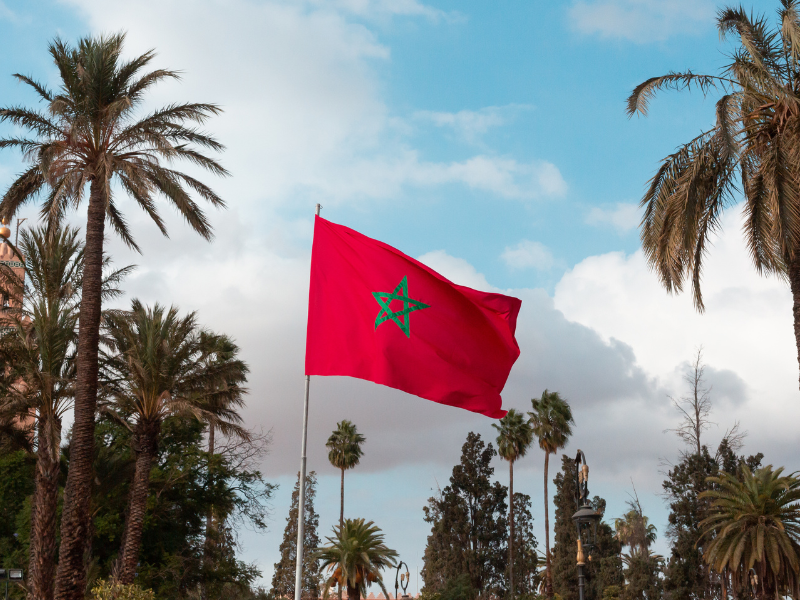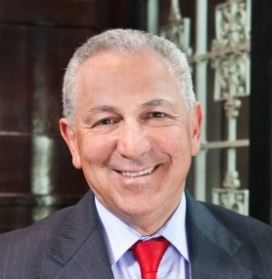Morocco at the time of COP22
Aziz Mekouar agreed to talk to us about his international career, Morocco's development and the challenges of COP22.

Morocco, a country with a future
Aziz Mekouar, International Relations Advisor to the Chairman of BMCE Bank of Africa and other groups, has been appointed by His Majesty the King of Morocco as Ambassador for Multilateral Negotiations in preparation for COP 22 in Marrakech. He agreed to talk to us about his international career, Morocco's economic development and the challenges of COP 22.
Aziz Mekouar, a journey through cultures
To what extent has your international background shaped your personality?
My international background began very early. As my father was a diplomat, I lived outside Morocco for a long time and studied in France. As a diplomat myself, I then traveled and lived in various countries, including the United States, Portugal, Angola, Italy, etc., without ever cutting myself off from my Moroccan roots. I speak several languages, which gives me easy and immediate access to the culture of each country and enables me to feel at ease in the world of others and to analyze, without judgment, their reactions in the light of my own experience. This is a huge advantage.
Can you share an anecdote illustrating the impact of culture on behavior?
In the United States, Congress passes a law called the Trade Promotion Authority (TPA), which gives the President the power to conduct trade negotiations with a country or zone. Under this law, Congress can only accept or reject the agreement negotiated by the administration. During negotiations on the free trade agreement with the United States, the Americans proposed a text that gave rise to a debate on the usefulness of inserting a certain phrase. After our discussions, they presented us with the new text without having modified the sentence in question, which provoked a lively exchange and the beginning of a real misunderstanding. The Americans then argued that if this sentence had not appeared in the text of the agreement, it would have been rejected by Congress. In fact, certain phrases must appear in agreements, otherwise they are rejected outright by Congress. This anecdote shows a different relationship to rules and formalism.
Morocco's economic development
How would you characterize Morocco's economic and political development?
There has been a major effort to promote Morocco's economic development. What strikes my foreign friends is that we do what we say we're going to do. When we said we would develop the automotive industry, we created the conditions to do so. Foreign investment has been massive. Take the aeronautics industry, for example: ten years ago, it represented nothing. Today, it's worth a billion dollars, and the biggest players in the sector have set up in Morocco, which has become one of the links in the aeronautics supply chain in the Mediterranean basin and Europe. Morocco also has a strong relationship with the United States. Developments in the banking sector and the modernization of the financial system are also considerable. The automotive sector, renewable energies and many others have literally exploded. Tangier is one of the largest ports on the Mediterranean. Thanks to free-trade agreements, Morocco's products can reach a billion people duty-free.
Politically, there is a consensus around the constitutional monarchy, which is very popular. The latest elections show that there is a real phenomenon of democratization. Political parties are expressing themselves, forming coalitions, and democratic life is taking its course in full respect of the constitution. The "Arab Spring" did not take hold in Morocco because the political parties, trade unions, intermediary bodies and students did not join in: the reforms in political or social freedoms, such as the reform of the family code, called for by movements in other Arab countries had already been achieved long ago in Morocco.
Morocco and Africa
What are the keys to understanding Morocco's current role in Africa?
Morocco and sub-Saharan Africa have a long history. First of all, West Africa was Islamized by Ahmed Tijani and his companions. The first pilgrimage of West Africans took them to Fez, where he is buried, before going on to Mecca. After that, trade relations with Mali, Senegal, Guinea, etc. were ancestral. So there's a real cross-influence and a strong connection.
Morocco is increasingly present in Africa, the main economic players are talking to each other more, Moroccan banks are well established and many Moroccan companies are investing there.
In addition, West African immigration to Morocco is creating stronger ties. This interpenetration is important today and will continue to develop. Sub-Saharan Africa may have lacked managers at the time of independence, but today there are some very well-trained people, which augurs well for a real transformation in the years to come. The key to these prospects for progress is maturation.
COP 22
What's at stake at COP 22?
It's the marker of a new awareness within the community of world leaders.
Environmental awareness has existed in Morocco for a long time: facing up to climate change, raising everyone's awareness in schools and local authorities, launching a renewable energies program. We're already seeing results: the Noor solar power plant near Ouarzazate is set to become the largest in the world, and by 2020, 42% of Morocco's energy will come from renewable sources, rising to 52% by 2030. Our wind power is one of the cheapest in the world.
His Majesty the King believes that there is a real danger and that we need to react quickly to mobilize our country and raise the awareness of Moroccans. COP 22 is everywhere: people are talking about climate change, the measures taken in this context, and collective awareness. From a global perspective, Morocco's leadership in this field is real.
After twenty years of negotiations, the Paris Agreement was a historic milestone. The main polluting countries (United States, China, India, Brazil, etc.) have ratified it. Now we have to put it into practice: define the rules, procedures and modalities. This is what we started to do in Marrakech. Initiatives will be announced in Morocco on the occasion of this COP 22, which is unique in its kind because previous ones were a search for consensus on an agreement. It is as historic as the one in Paris.
What are non-state actors, civil society and local authorities going to do? The challenge is to mobilize financial resources, create bankable projects, build capacity, train people in project management...
We need to mobilize, take concrete action and move forward, because we can't wait any longer.
